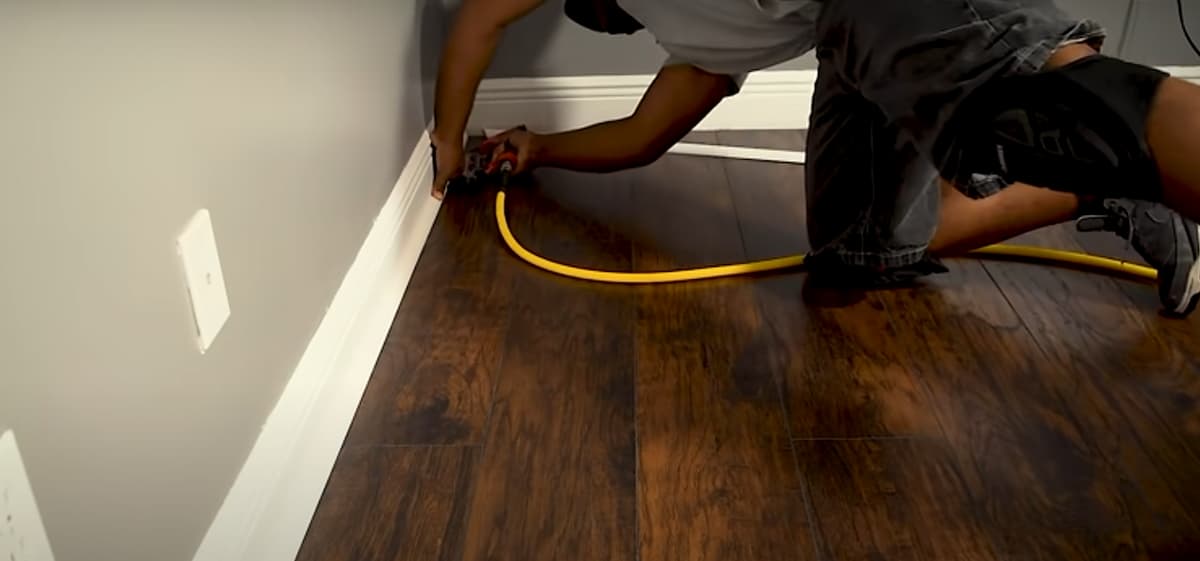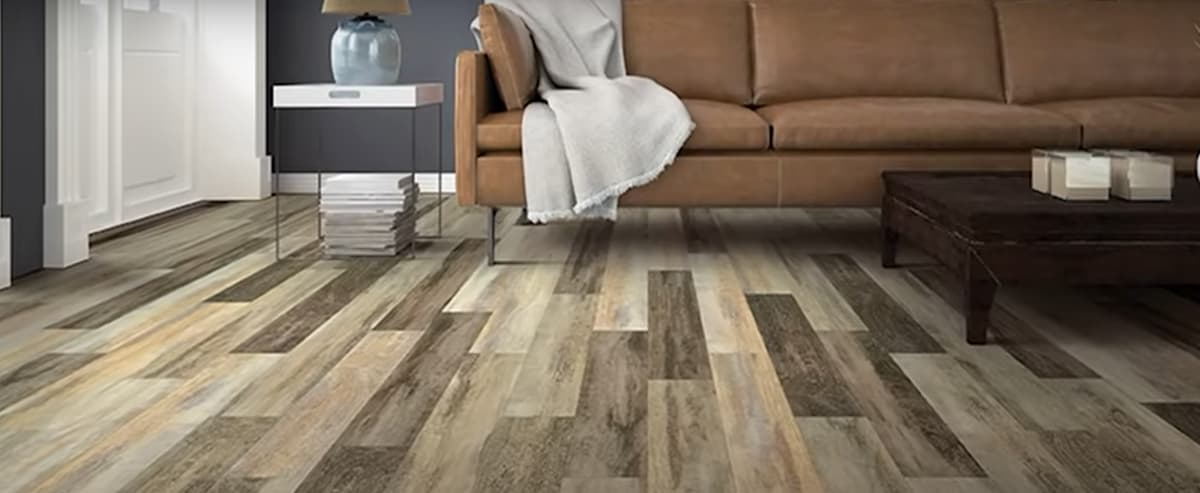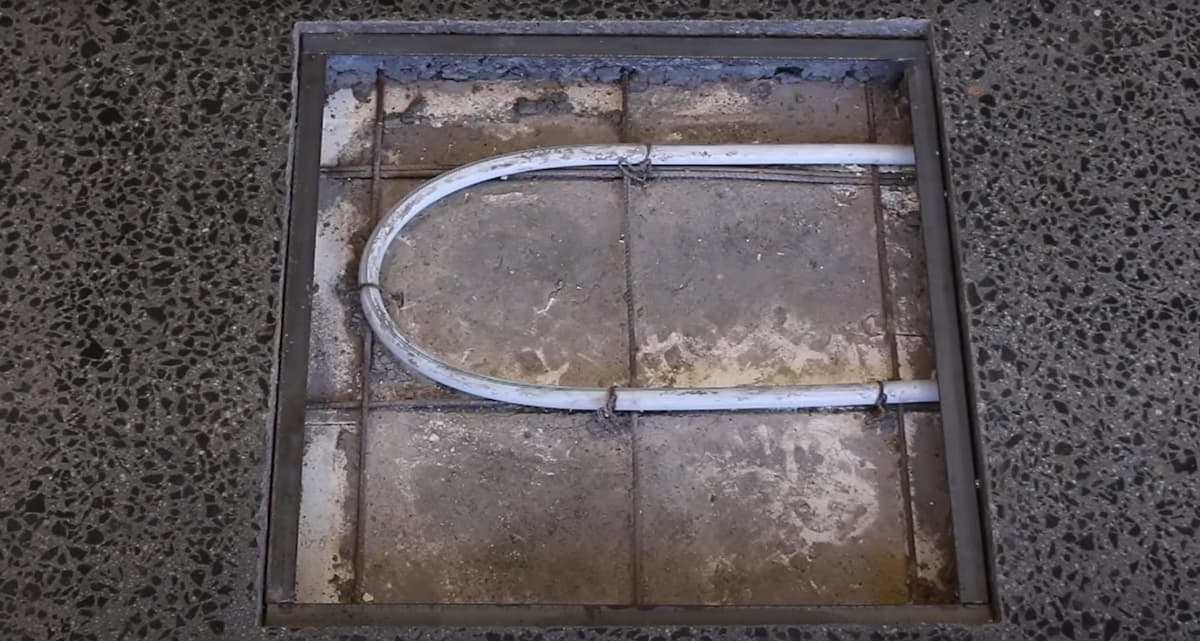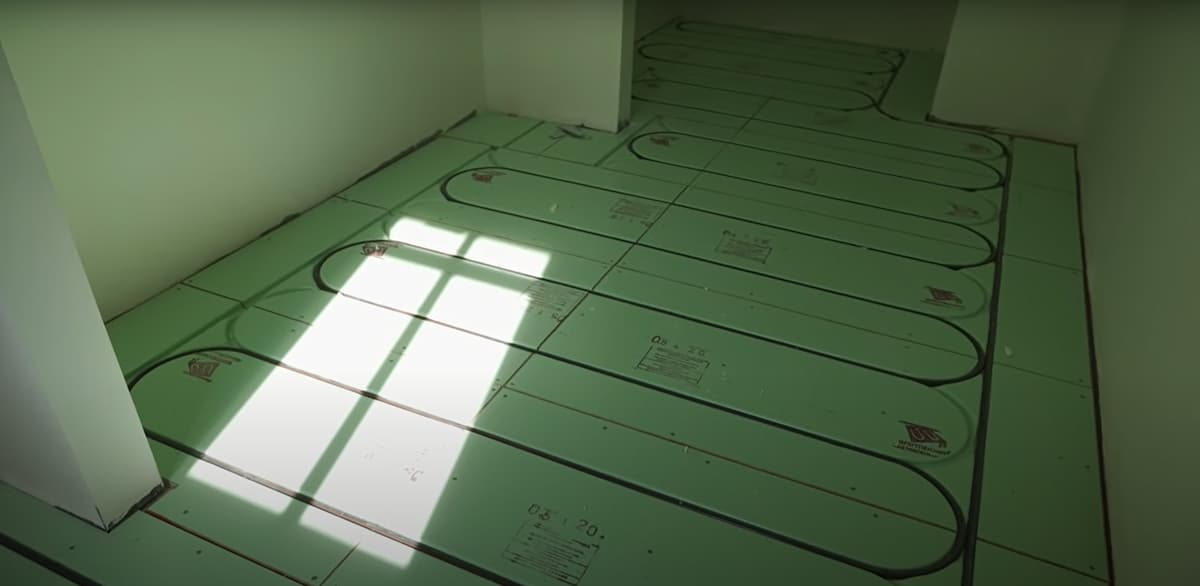What is Laminate Flooring | What is Vinyl Flooring | Comparing Laminate & Vinyl Flooring | Suitable Laminate Floors | Suitable Vinyl Floors | Advantages of Laminate Flooring | Disadvantages of Laminate Flooring | Advantages of Vinyl Flooring | Disadvantages of Vinyl Flooring
Vinyl flooring and laminate flooring are affordable alternatives to hardwood flooring. Both come in designs that resemble the aesthetics of real wood or stone and they have gained popularity in Aussie homes over the years.
Homeowners who want wood look flooring without having to spend a lot may evaluate each flooring pros and cons, and while both might look similar to the naked eye, they have distinct features which can in the end decide whether you use laminate or vinyl in your home, depending on your lifestyle and requirements.
We will take a look at each in detail below in order to help you make an informed decision as to which is best for your home.
What is Laminate Flooring?
Laminate flooring is made from 99% wood by-products. In the manufacturing process, four layers are fused together in a single press operation at high heat over 150 0 Celcius using what is known as direct-pressure laminate.
At the bottom is a base layer for balancing, followed by a core layer which is made of a high-density fibreboard (99% wooden core), next is the decorative paper layer that gives the laminate plank its distinctive look and finally at the top is a wear layer.
The wear layer seals and protects the surface of the laminate floor, and it also shields the decorative paper layer from ultraviolet rays that could make it fade.
What is Vinyl Flooring?
Vinyl flooring is also known as PVC Vinyl flooring, is 100% plastic and it consists of a back layer, a fibreglass layer, a middle layer, another fibreglass layer, a print layer, a design layer, a wear layer and polyurethane coating to protect it from ultraviolet rays that could make it fade.
Vinyl flooring types: luxury sheet vinyl, luxury vinyl plank and luxury vinyl tile.
Luxury sheet vinyl
Luxury sheet vinyl is mostly used in moisture-prone areas like kitchens and bathrooms. They come in sheets 6 or 12 feet wide making the floor installation process easy.
Luxury vinyl planks (LVP)
Luxury vinyl planks mimic the look of cut hardwood and they are often used when trying to mimic natural wood.
Luxury vinyl tile (LVT)
Luxury vinyl tile is often used to mimic stone or create an intricate pattern. It comes in tiles of 9″ x 9″ or 12″ x 12″ and is usually installed in a commercial setting with high foot traffic or where a clean environment is desired and it can be a cost-effective choice for households.
Vinyl comes in a loose fit, glue down and interlocking styles which are joined together like laminate flooring planks. These three types of vinyl flooring are all water-resistant.
Difference Between Laminate Flooring & Vinyl Flooring?
Though Laminate and vinyl flooring are similar in many ways, there are some qualities that differentiate them. Let’s explore them below:
Cleaning methods
A vinyl floor is easy to maintain and clean, it can be cleaned using a steam mop or wet mop, non-abrasive mild cleaners can also be used.
As for the laminate floor, it is also easy to clean and maintain but there are a few precautions, a wet mop should be avoided by all means, it should be cleaned by a steam mop or laminate specific products.
It should also not be exposed to water, water or spills should be cleaned immediately to avoid warping, buckling or separation of the laminate. If one needs to remove a sticky substance or stain, use a soap-free solution mixed into a spray bottle, spray the area and wipe it using a dry cloth or dry mop.
Installation
Installation laminate
A laminate floor can be floated, it typically features a simple click and lock system which is easy to use and DIY installation is also possible.
Installation vinyl
Vinyl comes in a loose fit, glue down and interlocking styles which are joined together like laminate planks. Therefore, they can be glued down, floated, or clicked and locked depending on the type. DIY installation is also possible.
Cost
Laminate flooring cost
Depending on quality, it costs anywhere from $18 to $100 per square meter, excluding installation cost.
Vinyl flooring cost
Depending on quality, vinyl flooring costs around $55 to $65 per square meter, including installation.
Overall, both are cheaper than hardwood floors and you can achieve a wood look floor at a fraction of the cost. Cleaning and maintenance is also an easy task for both, easier than wood floors. They come in various styles and shapes and look like real wood, more so laminate because it is made of wood byproducts.
They are durable, pet friendly, can withstand heavy foot traffic, easy to install, the main difference when you compare these two types of flooring is that vinyl is 100% waterproof while laminate flooring is not.
What Types of Floors Is Laminate Suitable For
Laminate floors are highly durable and scratch-resistant, don’t dent or stain easily and is ideal for places with high foot traffic and homes with pets and children. A laminate floor is also highly resistant to fading and can withstand exposure to sunlight over long periods of time, more so than a vinyl floor, therefore it is also suitable for outdoors.
What Types of Floors Is Vinyl Suitable For
This type of flooring is extremely durable and versatile and is 100% waterproof. Luxury sheet vinyl is an ideal choice for bathrooms, kitchens and other rooms where moisture accumulates while cheaper vinyl sheet flooring may not be as effective.
Vinyl planks and vinyl tiles are suitable for living rooms because they look more like wood floors or stone. It however can be damaged by sharp objects, the surface print layer also wears off with time and it can fade more easily compared to laminate and is not suitable for places with a lot of sunlight.
Advantages of Laminate Flooring
Laminate flooring pros:
- It is easy to install.
- It does not fade easily.
- It is easy to clean.
- It is thick and warm making it comfortable to walk on.
- Does not scratch, dent or stain easily.
- Affordable.
- Durable, if installed and maintained well, it can last for up to 25 years.
- It has a resale value because it is made of 99% wood content.
Disadvantages of Laminate Flooring
Laminate flooring cons:
- It is louder to walk on than vinyl plank flooring.
- Not water-resistance.
- Can warp, buckle or delaminate.
- Cannot be refinished.
Advantages of Vinyl Flooring
Vinyl flooring pros:
- Water-resistance; it is 100% waterproof and is suitable for places like bathrooms and kitchens.
- Moisture resistance; it is 100% moisture resistant and is good for high moisture areas.
- Easy to clean and maintain.
- Affordable.
- Durable, if installed and maintained well, it can last for up to 20 years.
- Can withstand heavy foot traffic.
- Easy to install.
- Soft underfoot, it is not loud to walk on like laminate.
Disadvantages of Vinyl Flooring
Vinyl flooring cons:
- No resale value because it is made of 100% plastic.
- Cannot be refinished.
- Not biodegradable.
- Damaged by sharp objects.
- Fades easily.
\n
Laminate flooring is made from 99% wood by-products. In the manufacturing process, four layers are fused together in a single press operation at high heat over 150 0 Celcius using what is known as direct-pressure laminate.
\n\n\n
\n
At the bottom is a base layer for balancing, followed by a core layer which is made of a high-density fibreboard (99% wooden core), next is the decorative paper layer that gives the laminate plank its distinctive look and finally at the top is a wear layer.
\n\n\n
\n
The wear layer seals and protects the surface of the laminate floor, and it also shields the decorative paper layer from ultraviolet rays that could make it fade.
\n“}},{“@type”:”Question”,”name”:”What is Vinyl Flooring?”,”acceptedAnswer”:{“@type”:”Answer”,”text”:”
\nVinyl flooring is also known as PVC Vinyl flooring, is 100% plastic and it consists of a back layer, a fibreglass layer, a middle layer, another fibreglass layer, a print layer, a design layer, a wear layer and polyurethane coating to protect it from ultraviolet rays that could make it fade.
\n\n\n
\n
Vinyl flooring types: luxury sheet vinyl, luxury vinyl plank and luxury vinyl tile.
\n\n\n
\nLuxury sheet vinyl
\n\n\n
\n
Luxury sheet vinyl is mostly used in moisture-prone areas like kitchens and bathrooms. They come in sheets 6 or 12 feet wide making the floor installation process easy.
\n\n\n
\nLuxury vinyl planks (LVP)
\n\n\n
\n
Luxury vinyl planks mimic the look of cut hardwood and they are often used when trying to mimic natural wood.
\n“}},{“@type”:”Question”,”name”:”Difference Between Laminate Flooring & Vinyl Flooring?”,”acceptedAnswer”:{“@type”:”Answer”,”text”:”
\n
Though Laminate and vinyl flooring are similar in many ways, there are some qualities that differentiate them. Let’s explore them below:
\n\n\n
\nCleaning methods
\n\n\n
\n
A vinyl floor is easy to maintain and clean, it can be cleaned using a steam mop or wet mop, non-abrasive mild cleaners can also be used.
\n\n\n
\n
As for the laminate floor, it is also easy to clean and maintain but there are a few precautions, a wet mop should be avoided by all means, it should be cleaned by a steam mop or laminate specific products. It should also not be exposed to water, water or spills should be cleaned immediately to avoid warping, buckling or separation of the laminate. If one needs to remove a sticky substance or stain, use a soap-free solution mixed into a spray bottle, spray the area and wipe it using a dry cloth or dry mop.
\n\n\n
\nInstallation
\n\n\n
\nInstallation laminate
\n\n\n
\n
A laminate floor can be floated, it typically features a simple click and lock system which is easy to use and DIY installation is also possible.
\n\n\n
\nInstallation vinyl
\n\n\n
\nVinyl comes in a loose fit, glue down and interlocking styles which are joined together like laminate planks. Therefore, they can be glued down, floated, or clicked and locked depending on the type. DIY installation is also possible.
\n”}}]}




